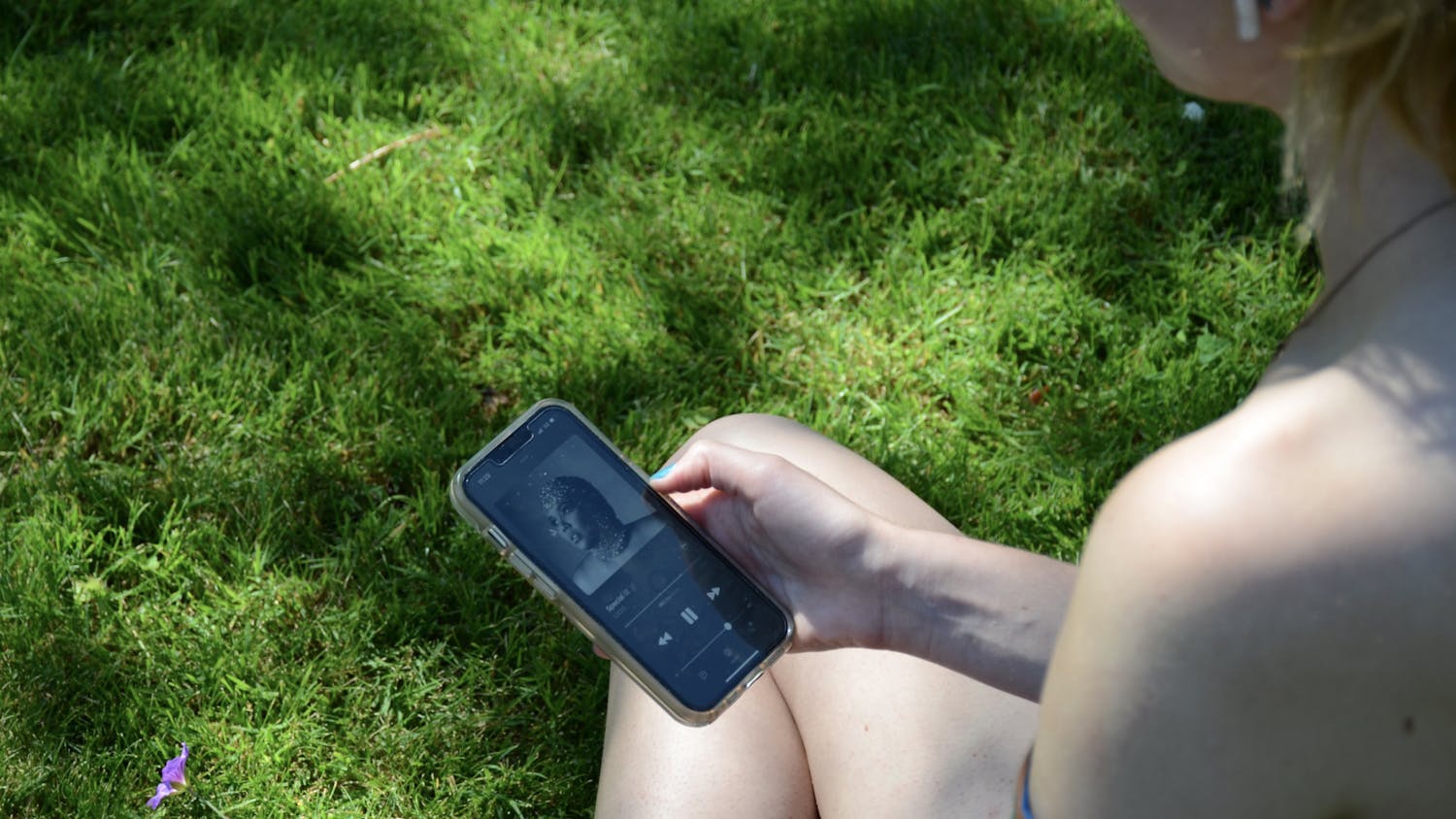I can’t say it enough: we underutilize our phones. And as students, it makes sense that we should use our cellular companions as study aids, right? If an app for your major wasn’t on last month’s list, read on: it’s Apps for your Major Part Two, ya’ll. Click here for Part One.
 1. Swifty
Category: Specialty tutorials
Great for: Computer science or design majors, hackers, Siri lovers who need more out of their phone relationship.
Swifty is an interactive, at-your-pace coding tutorial. The basic lesson teaches the fundamentals of computer science, and the subsequent lessons (there are 13 total) help you practice the different strategies in coding such as Bool, Functions, Loops and Strings. In any easy combination of swipe-and-type, you can complete lessons and mark your progress quickly. The thing I love about Swifty is that it’s interactive without being cheesy, and it doesn’t spam you with notifications, unlike other apps like CodeAcademy. The thing I don’t like about Swifty is that chapters are locked until you complete the previous chapter, and extra courses cost about a dollar apiece. Still, this app is a great resource for beginning computer science students, or for students of any discipline who want to be more familiar with common languages and functions of our digital world.
1. Swifty
Category: Specialty tutorials
Great for: Computer science or design majors, hackers, Siri lovers who need more out of their phone relationship.
Swifty is an interactive, at-your-pace coding tutorial. The basic lesson teaches the fundamentals of computer science, and the subsequent lessons (there are 13 total) help you practice the different strategies in coding such as Bool, Functions, Loops and Strings. In any easy combination of swipe-and-type, you can complete lessons and mark your progress quickly. The thing I love about Swifty is that it’s interactive without being cheesy, and it doesn’t spam you with notifications, unlike other apps like CodeAcademy. The thing I don’t like about Swifty is that chapters are locked until you complete the previous chapter, and extra courses cost about a dollar apiece. Still, this app is a great resource for beginning computer science students, or for students of any discipline who want to be more familiar with common languages and functions of our digital world.
 2. BioDigital Human
Category: Medical reference
Great for: Pre-med, kinesiology or psychology majors, hypochondriacs, athletes, cannibals
BioDigital Human is an advanced yet accessible app meant for medical reference. It’s like Google Street view for the human body. The app allows you to have five maps in your guide at a time, and the choices are endless: anatomy students can view models of the musculoskeletal system, a cross-section of the human eye or the physical causes of Trigeminal Neuralgia. You know, basic stuff. But this app is relevant to even the non-medical student. There’s a model that shows the effects of a headache on the brain and one that shows how a prosthetic leg works in a full sprint. Maps can be rotated, zoomed, shared, and drawn on. Tap to highlight different parts of the model and read more about its function. Cross sections are available for almost every part of the models, just tap to isolate and dissect. BioDigital Human is a great reference for students and an interesting resource for the bored or curious.
2. BioDigital Human
Category: Medical reference
Great for: Pre-med, kinesiology or psychology majors, hypochondriacs, athletes, cannibals
BioDigital Human is an advanced yet accessible app meant for medical reference. It’s like Google Street view for the human body. The app allows you to have five maps in your guide at a time, and the choices are endless: anatomy students can view models of the musculoskeletal system, a cross-section of the human eye or the physical causes of Trigeminal Neuralgia. You know, basic stuff. But this app is relevant to even the non-medical student. There’s a model that shows the effects of a headache on the brain and one that shows how a prosthetic leg works in a full sprint. Maps can be rotated, zoomed, shared, and drawn on. Tap to highlight different parts of the model and read more about its function. Cross sections are available for almost every part of the models, just tap to isolate and dissect. BioDigital Human is a great reference for students and an interesting resource for the bored or curious.
 3. Jamn Multi-tool
Category: Recording device/Musical reference
Great for: Performance art and music majors, guitarists with writer’s block, family bands in need of harmony
There’s a collection of Jamn apps available for free, and they probably work best when used together, but this Multi-tool is a great resource for beginners and experts alike. The app uses the patented Jamn Wheel and the guitar as a base instrument. Users can spin the wheel to show relationships between different chords, scales, and keys, in-key chords and audio included. The app houses a large library of chords and features an easy guide to guitar finger positions. The most useful part of the app is its matching function, which allows users to find relationships between different instruments. For instance, say you’re writing a guitar/piano/ukulele piece: you can match your guitar chords to your piano notes to create that perfect sound. Other instruments can be added in-app for a small fee. This app is tremendously useful for project improvement or just for finding inspiration.
3. Jamn Multi-tool
Category: Recording device/Musical reference
Great for: Performance art and music majors, guitarists with writer’s block, family bands in need of harmony
There’s a collection of Jamn apps available for free, and they probably work best when used together, but this Multi-tool is a great resource for beginners and experts alike. The app uses the patented Jamn Wheel and the guitar as a base instrument. Users can spin the wheel to show relationships between different chords, scales, and keys, in-key chords and audio included. The app houses a large library of chords and features an easy guide to guitar finger positions. The most useful part of the app is its matching function, which allows users to find relationships between different instruments. For instance, say you’re writing a guitar/piano/ukulele piece: you can match your guitar chords to your piano notes to create that perfect sound. Other instruments can be added in-app for a small fee. This app is tremendously useful for project improvement or just for finding inspiration.
 4. Brainscape
Category: General reference/Memory aids
Great for: Future educators, study junkies, recovering Trivia Crack addicts
Brainscape is a collection of digital flashcards, organized by subject and difficultly and tailored to the user’s ability. This app is an excellent resource for current and future educators, because decks can be created and assigned, and progress can be monitored for classes or individuals. It’s great for students, too because if offers a custom experience and improves study habits with tips and non-annoying notifications. I use this app to keep my vocabulary sharp and challenge my friends to beat my score or my time. Decks can be shared via Facebook messenger, and a feedback loop (tap to rate) gauges your interest and knowledge. This app is unique because it can be used as a study or a teaching aid, as well as a trivia reference.
Chime in: What’s your major? What’s your app? Let us know!
4. Brainscape
Category: General reference/Memory aids
Great for: Future educators, study junkies, recovering Trivia Crack addicts
Brainscape is a collection of digital flashcards, organized by subject and difficultly and tailored to the user’s ability. This app is an excellent resource for current and future educators, because decks can be created and assigned, and progress can be monitored for classes or individuals. It’s great for students, too because if offers a custom experience and improves study habits with tips and non-annoying notifications. I use this app to keep my vocabulary sharp and challenge my friends to beat my score or my time. Decks can be shared via Facebook messenger, and a feedback loop (tap to rate) gauges your interest and knowledge. This app is unique because it can be used as a study or a teaching aid, as well as a trivia reference.
Chime in: What’s your major? What’s your app? Let us know!





